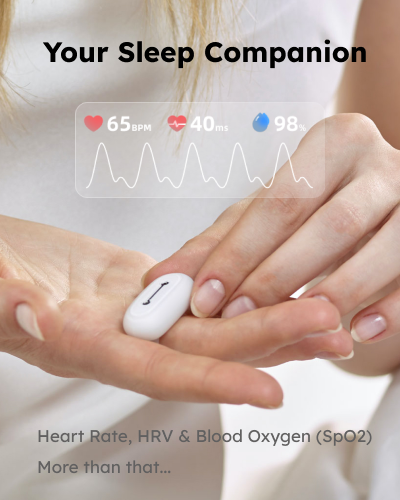8 Warning Signs Your Blood Sugar May Be Out of Control
According to the International Diabetes Federation (IDF) 2021 Diabetes Atlas report, approximately 537 million adults (ages 20-79) worldwide have diabetes, accounting for 10.5% of the global population in this age group. This number is expected to rise to 643 million by 2030 and increase to 783 million by 2045. Alarmingly, about 44% of diabetes patients globally remain undiagnosed, which means many people may be experiencing “uncontrolled” blood sugar levels without being aware of it.
So, what symptoms might indicate elevated blood sugar, and how can we recognize them in our daily lives?
What is High Blood Sugar?
High blood sugar, or hyperglycemia, occurs when fasting blood glucose levels exceed 6.1 mmol/L or when blood glucose levels exceed 7.8 mmol/L two hours after eating. It is normal for blood sugar levels to occasionally spike due to factors like consuming excessive sugary foods or experiencing stress; usually, the body can self-regulate these fluctuations back to normal. However, if blood sugar levels remain persistently high over time, it’s essential to be vigilant, as this could signal the onset of prediabetes or diabetes.
8 Warning Signs Your Blood Sugar May Be Out of Control
If you experience the following eight symptoms, it could indicate that your blood sugar is becoming uncontrolled:
- Constant Hunger: You always feel like you can’t get enough to eat.
- Frequent Urination: You have a strong urge to urinate often.
- Excessive Thirst: You feel very thirsty and want to drink more water.
- Unexplained Weight Loss: You lose weight without trying.
- Skin Issues: You experience itching, infections, or conditions such as folliculitis, athlete’s foot, or ringworm.
- Blurred Vision: Your vision becomes blurry.
- Slow-Healing Wounds: Cuts and bruises take longer to heal.
- Dental Problems: You develop cavities, gum disease, or other oral issues.
How to Control Blood Sugar
Diet
- Control Total Caloric Intake: Adjust your diet to include more blood sugar-friendly foods. If your BMI is over 28, consider reducing your daily food intake by about half. If your BMI is between 24 and 28, reducing your intake by about one-third is advisable.
- Nutritional Balance: Aim for a diet where 50% of your daily caloric intake comes from carbohydrates, 30% from fats, and 20% from proteins. Carbs and proteins should each occupy about one-quarter of your plate, while vegetables should make up half.
- Include Beneficial Foods:
- Foods rich in unsaturated fats (like fatty fish and plant oils) can improve insulin resistance and promote insulin secretion.
- High-fiber foods (like oats and corn) can help avoid significant fluctuations in blood sugar levels.
Sleep
- Ensure you get sufficient sleep duration and quality. Research indicates that regularly sleeping less than 6 hours or more than 8 hours can increase the risk of diabetes. Good sleep helps regulate blood sugar, as brain waves during deep sleep can enhance the body’s sensitivity to insulin.
Exercise
- Incorporate Both Aerobic and Resistance Training: Aerobic activities like brisk walking, jogging, and cycling can help consume glucose absorbed from food, directly lowering blood sugar levels. Resistance exercises like squats, weight lifting, and sit-ups can increase muscle cell size and improve insulin sensitivity, which can indirectly stabilize blood sugar fluctuations. Therefore, it is recommended to combine aerobic exercise with resistance training.
Emotional Health
- Manage Negative Emotions: When we experience strong emotions, the body triggers a stress response, releasing adrenaline that rapidly raises blood sugar levels. Daily stressors can act as triggers, leading to fluctuations in blood sugar. To manage feelings of tension or anxiety, consider engaging in activities like reading, meditating, listening to music, talking with friends, or participating in outdoor activities to help maintain emotional balance.
SLEEPON Go2Sleep 3
In addition to lifestyle interventions, there’s a smarter way to monitor your blood sugar health. You can choose the SLEEPON Go2Sleep 3 sleep tracker, which offers innovative non-invasive blood sugar monitoring without the need for blood draws, making it easier to assess your blood sugar levels and increasing awareness of potential high blood sugar risks.
Go2Sleep 3 is easy to wear and can monitor multiple health metrics such as heart rate, blood oxygen levels, and ODI. It generates real-time data and automatically produces detailed sleep reports in the SLEEPON 3 app for you to review the next day, helping you understand your sleep health status.
Additionally, if your blood oxygen levels are abnormal, the device will provide real-time vibration alerts, continuously safeguarding your health.
ALL ARTICLES
Subscribe Us
403A, Building A2, Zhihui Park, Fuyong Street, Bao'an District, Shenzhen, Guangdong, China
Products
Company
Copyright © SLEEPON. All rights reserved.
SLEEPON keeps both Sleeponhealth and Sleepon.us due to the brand upgrading. We promise to provide the same products and service in both sites.








Leave a Reply